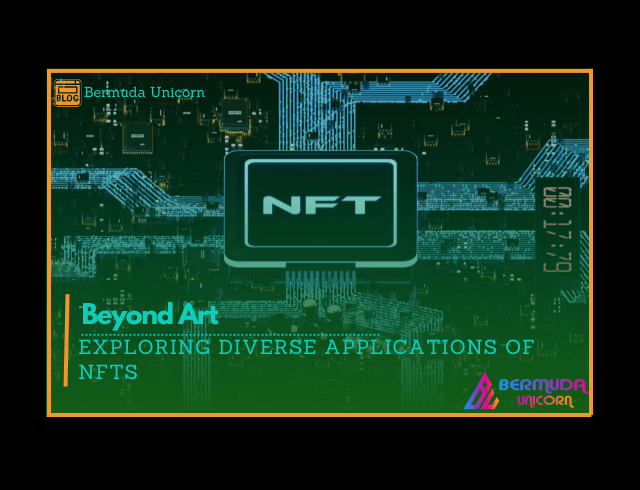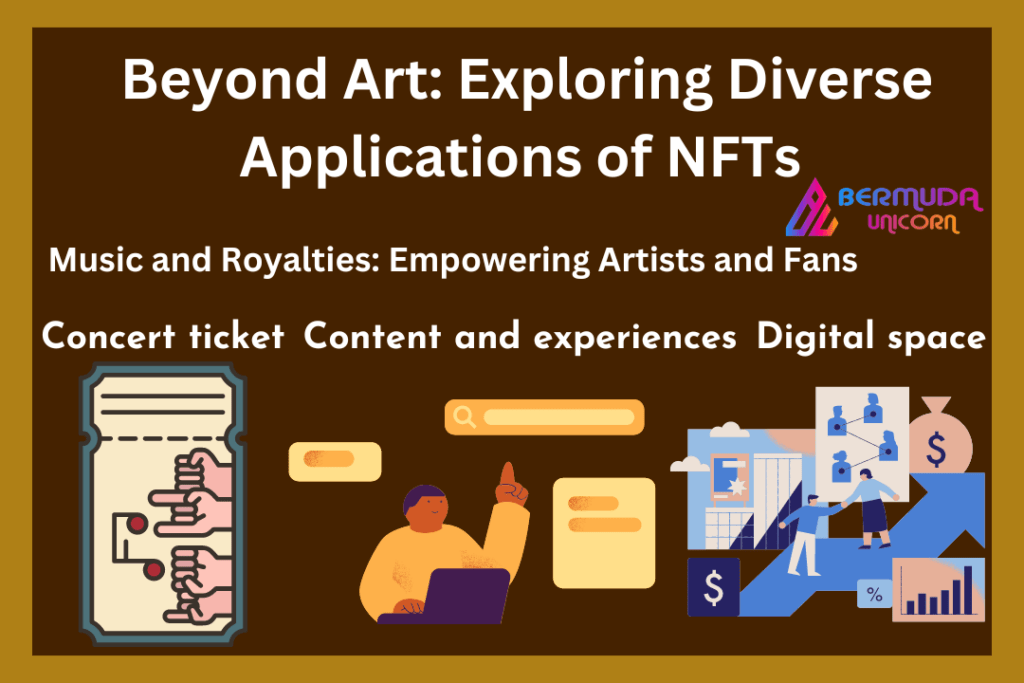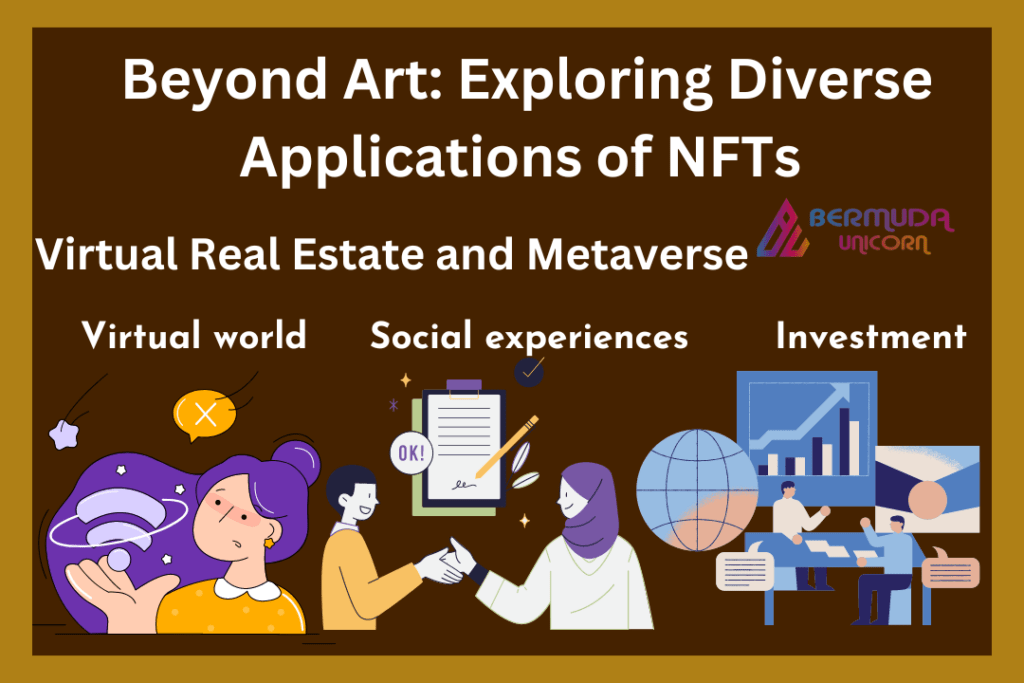

Introduction
Non-Fungible Tokens (NFTs) have captured the attention of the digital world, revolutionizing the art industry. However, the potential of NFTs extends beyond art, permeating various sectors and unlocking new opportunities. In this blog, we will explore the diverse applications of NFTs, showcasing how this groundbreaking technology is reshaping industries such as gaming, music, collectibles, virtual real estate, and more. Join us on this journey as we dive into the expansive world of NFTs beyond art.
Embracing True Ownership in Virtual Worlds
NFTs transformed gaming by introducing true ownership and scarcity to virtual assets. In traditional gaming, players invest time and money in acquiring in-game items, only to face restrictions by centralized systems. NFTs allow gamers to own, trade, and monetize their in-game items, characters, and digital collectibles. This enhances player experiences and fosters decentralized gaming economies, granting players greater control and value over their virtual possessions. Virtual assets are now valuable investments, allowing gamers to reap rewards from their digital endeavors.
Empowering Artists and Fans

NFTs revolutionize the music industry, offering artists fresh opportunities for monetization and fan engagement. Musicians can release exclusive music, concert tickets, and limited edition merchandise as NFTs, enabling fans to directly support them and participate in their success. Artists can now earn ongoing royalties from secondary sales, establishing a sustainable revenue stream that was previously absent in the digital realm. This empowers artists to forge stronger connections with their fan base, while fans gain access to unique content and experiences.
Digital Assets with Tangible Value
NFTs have revitalized the collectibles and memorabilia industry, encompassing a wide range of items such as trading cards, sports memorabilia, digital art, and virtual fashion. Tokenizing these assets as NFTs offer a secure and verifiable method of ownership and trading for rare and unique items. Collectors now have thrilling opportunities to explore, purchase, and sell in the digital domain. Blockchain technology guarantees the authenticity and scarcity of these digital assets, thereby increasing their value and desirability among collectors globally.
Building the Digital Frontier
NFTs are transforming the real estate landscape within virtual worlds and the emerging metaverse. By tokenizing virtual land, buildings, and environments, NFTs allow for ownership and investment in the digital realm. This paves the way for virtual commerce, social experiences, and collaborative ventures. The metaverse, a shared virtual space where people can interact and engage, is becoming a tangible concept thanks to NFTs. It holds tremendous potential for innovative entertainment, work opportunities, and social interactions, establishing a novel economy that transcends physical limitations.

Protecting Creativity in the Digital Age
NFTs provide a revolutionary solution for protecting intellectual property and establishing authenticity. Content creators, writers, and artists can tokenize their work as NFTs, offering verifiable evidence of ownership and establishing a direct connection with their audience. NFTs guarantee that artists receive proper credit for their creations and enable them to monetize their intellectual property. In the digital age, NFTs usher in a new era of creative control, allowing artists to safeguard their work and receive fair recognition and compensation for their contributions.
Combining Digital Ownership with Giving Back
NFTs have the potential to drive social impact by facilitating tokenized philanthropy. Artists and creators can tokenize artwork or unique experiences as NFTs and dedicate a portion of the proceeds to charitable causes. This empowers individuals to support important initiatives while enjoying ownership of digital assets that hold value and contribute to positive change. Tokenized philanthropy creates a bridge between the digital world and real-world impact, allowing for greater transparency and accountability in charitable endeavors.
Conclusion
While NFTs initially gained recognition in the art world, their impact extends far beyond that realm. From gaming and music to collectibles, virtual real estate, and intellectual property protection, NFTs are transforming industries and offering new opportunities for creators, collectors, and enthusiasts. By exploring these diverse applications of NFTs, we embrace a future where ownership, authenticity, and value exchange are revolutionized in the digital realm. The potential for NFTs to shape the way we engage with various sectors is vast, promising a more connected, inclusive, and innovative future. NFTs have unleashed the power to reshape digital ownership and pave the way for endless possibilities in the digital frontier.